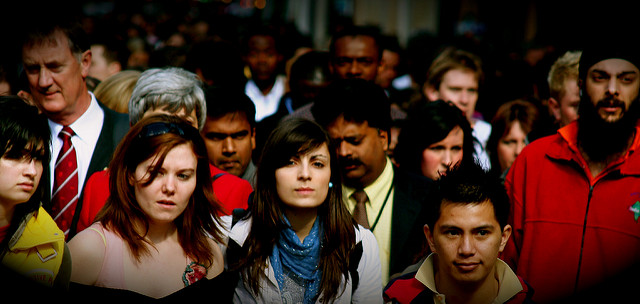How to Connect Without Language Abroad
As human beings, our primary form of communicating and connecting with others is verbal. This form of communication and connecting is very dependent on the use of language. When a situation arises where two individuals speak different languages, it can be more challenging for them to communicate and form a connection with each other. The belief that it is impossible to form a connection with an individual with whom you cannot verbally communicate with, is a very limiting assumption; sometimes the most memorable connections with people are formed without verbal communication. It is in our nature as human beings to find a way to connect and communicate with each other, regardless of whether we understand each other’s languages. These are five ways to connect with others without verbal language.

Photo via Flickr
1. Facial Expressions
Communicating with others involves both spoken and unspoken ways of getting a message across and forming a connection. Facial expressions are subtle signs which complement verbal communication and are very useful tools for nonverbal communication. A smile is the shortest and fastest communication between strangers; no language is required to form a connection with a simple facial expression like a smile.
2. Hand Gestures
Some of the most charismatic individuals make use of hand gestures to support communicating. Hand gestures are a form of nonverbal communication in which bodily actions (mainly with the hands) are used to communicate particular messages. This tool enables people to form connections with others without the use of language. These gestures can be used in conjunction with speech, but in cases where you do not speak the same language as others, they are useful communication tools to be used in place of speech.

Photo via Wikimedia
3. Music
People of different religions, races, cultures and languages all over the world form different relationships with the same song. Music has a way of bringing people from all walks of life together and can be a great way to form a connection with others without relying on language as appreciating and enjoying a song requires no words. Standing next to someone at a concert who doesn’t speak your language doesn’t prevent you from forming a connection over the mutual enjoyment of the show.
4. Drawings
This often occurs when trying to ask someone who doesn’t speak your language a question about directions. It’s incredible how sometimes the best directions you will ever receive are from someone who doesn’t speak the same language as you. Ever heard of the game pictionary? It is a drawing word-guessing game which will definitely come in handy when trying to describe something without the use of language.
5. Activities
If your preference is to stay in hostels or homestays while travelling abroad, you will be familiar with instantly spending time with people from different countries. Often people at a hostel who have similar interests will end up partaking in activities together such as sightseeing, hiking or travelling to the next destination. In some cases, you may find yourself in a situation where another traveller who is eager to do the same activity cannot speak your language. You will soon discover that when you decide to partake in an activity together, you choose to share your experience; this creates a level of bonding and with or without language, a connection is formed.

Photo via Flickr
As human beings, we are quite reliant on language and verbal communication in order to form connections with each other. When the possibility of communicating verbally with language is eradicated, we are forced to seek out more creative and alternative ways of forming connections. Can you think of any other ways you have formed connections with people who don’t speak the same language as you whilst abroad?
